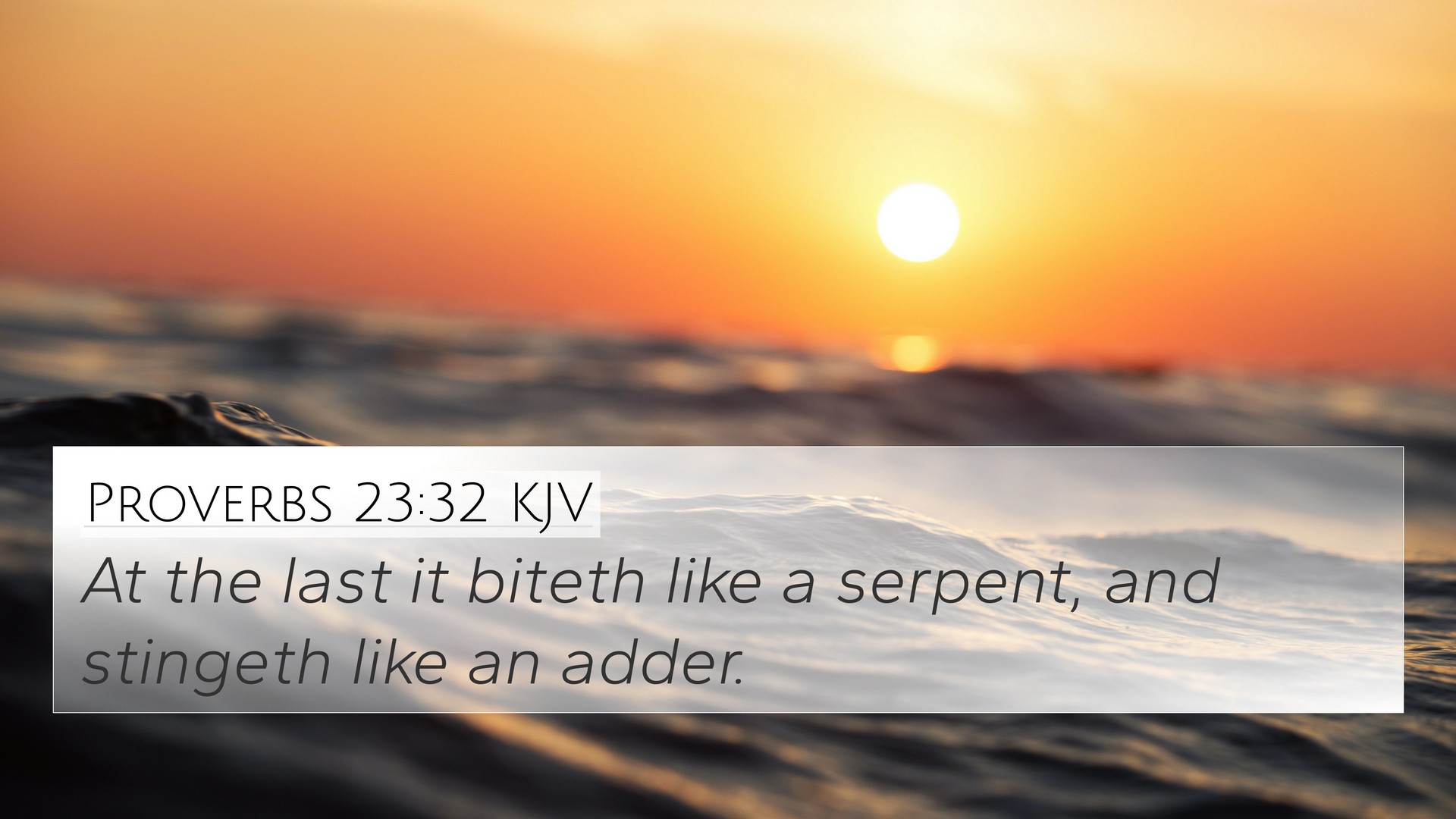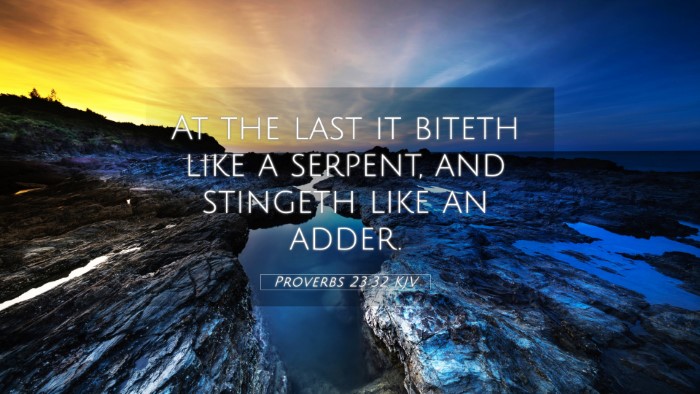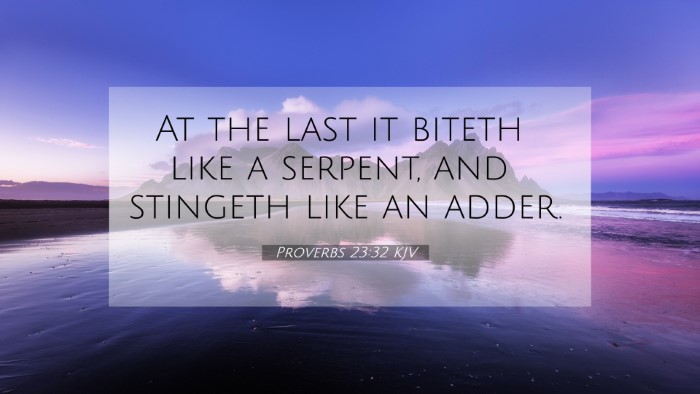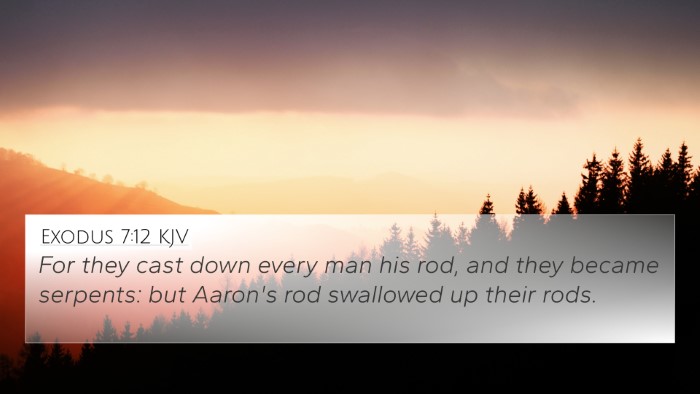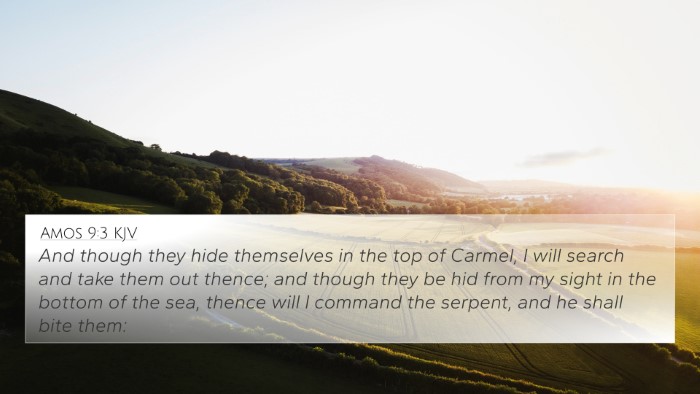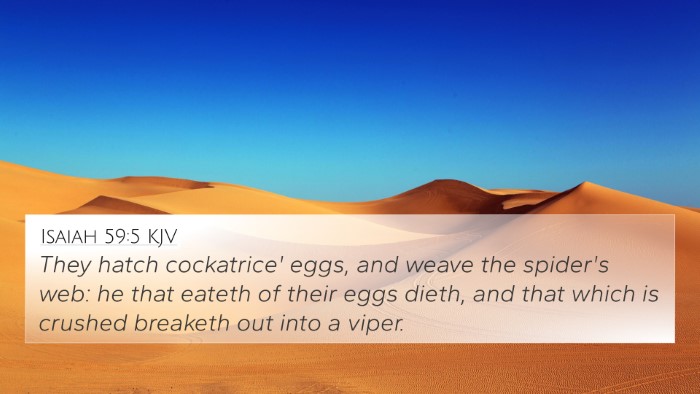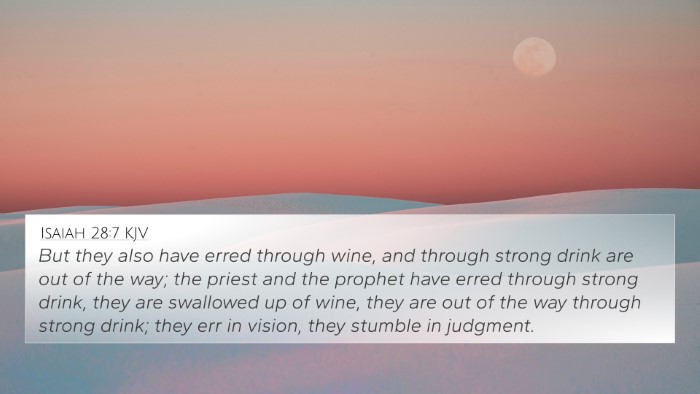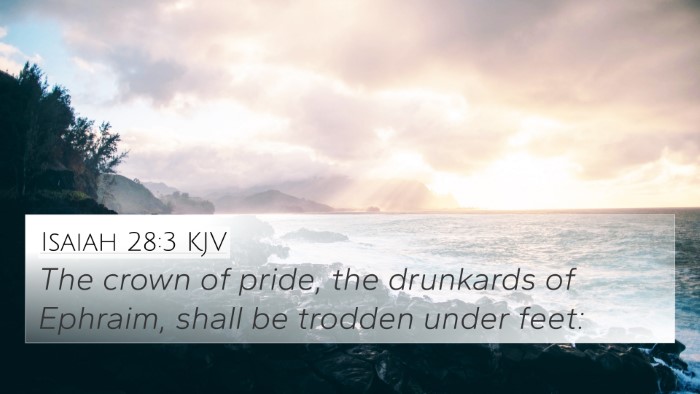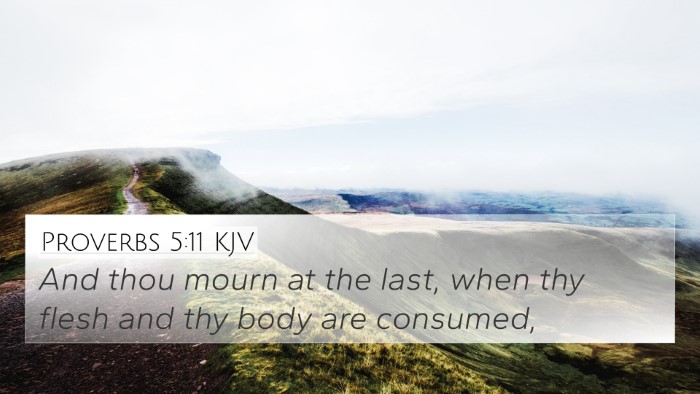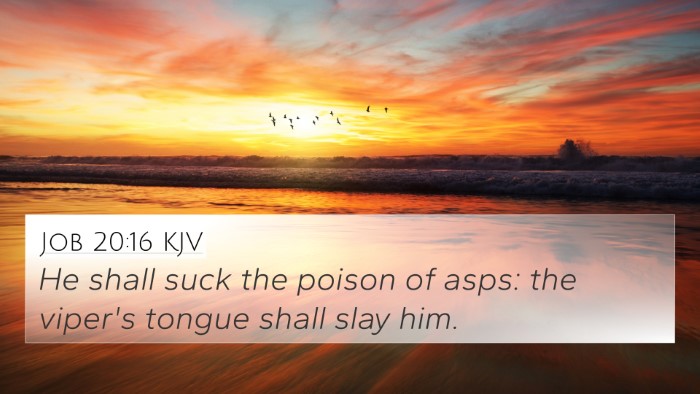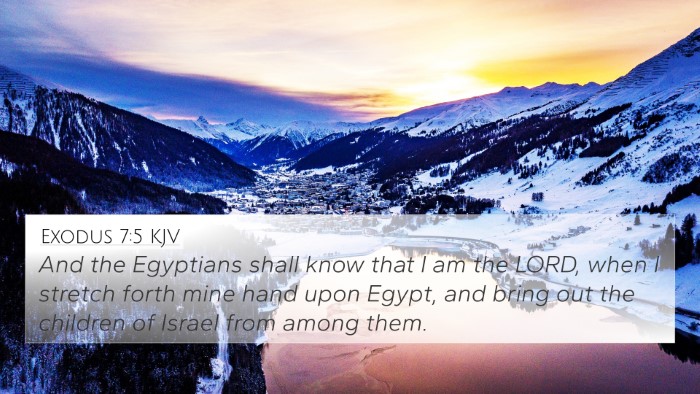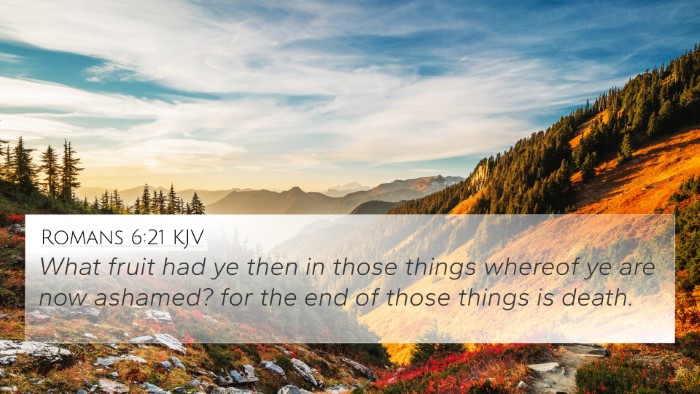Understanding Proverbs 23:32
Proverbs 23:32 states: “At the last it biteth like a serpent, and stingeth like an adder.” This verse speaks to the consequences of indulgence, particularly in the context of alcohol and other vices. Below we explore the implications of this scripture through insights from renowned public domain commentaries.
Meaning of Proverbs 23:32
General Explanation: The verse warns about the deceptive and harmful nature of certain pleasures. While they may seem enticing and pleasurable at first, like drinking wine, they ultimately lead to pain and regret, akin to the bite of a venomous snake.
Insights from Commentators
-
Matthew Henry:
Henry emphasizes the distinction between the initial allure of wine and its final results. He notes that the “biting” and “stinging” suggest irreversible damage and indicates the pain that follows excessive indulgence in substances that alter one’s state.
-
Albert Barnes:
Barnes elaborates on the metaphorical language used in this verse. He compares the excitement of drinking to a snake's envenomed bite—a pleasure that brings hidden dangers and dire consequences, leading one away from wisdom and righteousness.
-
Adam Clarke:
Clarke draws attention to the contrasts present in the verse. He explains that while the pleasures may be enjoyable in the moment, they culminate in serious repercussions, emphasizing the importance of moderation and self-control.
Related Bible Cross-References
To gain a richer understanding of Proverbs 23:32, it can be beneficial to explore related scriptures. Here are several cross-references that illustrate the themes discussed:
- Proverbs 20:1: "Wine is a mocker, strong drink is raging: and whosoever is deceived thereby is not wise." This verse reiterates the folly of intoxication.
- 1 Peter 5:8: “Be sober, be vigilant; because your adversary the devil, as a roaring lion, walketh about, seeking whom he may devour.” This emphasizes the need for self-control.
- Proverbs 4:23: "Keep thy heart with all diligence; for out of it are the issues of life." A reminder to guard one’s heart against harmful influences.
- Galatians 5:19-21: Lists the works of the flesh, including drunkenness, warning of their serious implications.
- Isaiah 5:11: "Woe unto them that rise up early in the morning, that they may follow strong drink." This verse directly addresses the dangers of excessive drinking.
- Ecclesiastes 10:17: "Blessed art thou, O land, when thy king is the son of nobles, and thy princes eat in due season, for strength, and not for drunkenness." This underscores the value of moderation in leadership.
- Romans 13:13: “Let us walk honestly, as in the day; not in rioting and drunkenness.” This highlights the moral imperative to avoid such excesses.
- Proverbs 21:17: "He that loveth pleasure shall be a poor man: he that loveth wine and oil shall not be rich." This serves as a warning of the economic repercussions of indulgence.
- 1 Corinthians 10:31: “Whether therefore ye eat, or drink, or whatsoever ye do, do all to the glory of God.” A call to ensure all activities, including drinking, honor God.
- Proverbs 23:29-30: These preceding verses discuss the woes that come from drinking, leading directly into the warning of 23:32, enhancing its context.
Thematic Connections in Context
The themes of wisdom versus folly, temptation, and the consequences of indulgence resonate throughout the Book of Proverbs and beyond. The warnings against strong drink extend into teachings found in both the Old and New Testaments, creating inter-Biblical dialogue that underscores the significance of self-control.
Conclusion
In exploring Proverbs 23:32, we glean vital lessons about the nature of pleasures and their repercussions. The combined insights from various commentaries highlight the timeless relevance of this warning. As we engage in cross-referencing Biblical texts, we witness the profound wisdom in Scripture regarding the dangers of excess and the value of moderation.
Tools for Further Study
For those wishing to delve deeper into connections between Bible verses, consider utilizing:
- Bible concordance – for locating specific verses related to particular themes.
- Bible cross-reference guide – assists in identifying interrelated scriptures.
- Comprehensive Bible cross-reference materials – for in-depth studies.
- Cross-reference Bible study – methods that promote thematic exploration.
